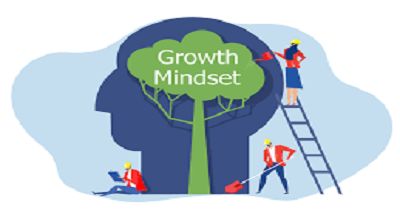Developing A Growth Mindset
Developing a growth mindset is the belief that one’s intelligence and abilities can be developed through effort and hard work. It is the opposite of a fixed mindset, which is the belief that one’s intelligence and abilities are fixed and cannot be changed.
A growth mindset is important for children because it helps them to develop a positive attitude towards learning and to persevere in the face of challenges. Children with a growth mindset are more likely to believe that they can improve their abilities through effort, and they are more likely to set challenging goals for themselves.
They are also more likely to be resilient in the face of setbacks. They are more likely to view challenges as opportunities to learn and grow. Developing a growth mindset in children is crucial for fostering resilience, adaptability, and a love for learning. Here are 20 ways to promote a growth mindset in children:
Praise Effort, Not Intelligence:
- Encourage children by praising their hard work, and perseverance. Dedication rather than focusing solely on their innate abilities.
Teach the Power of “Yet”:
- Introduce the concept that they may not have mastered a skill “yet,” emphasizing the potential for improvement with time and effort.
Encourage Challenges:
- Motivate children to embrace challenges as opportunities for growth, rather than avoiding difficult tasks.
Model a Growth Mindset:
- Demonstrate a growth mindset in your own life by sharing your struggles, and failures, and how you overcame them.
Highlight the Learning Process:
- Focus on the journey of learning rather than just the result. Emphasizing the importance of mistakes as learning opportunities.
Teach Resilience:
- Help children develop resilience by discussing setbacks, teaching problem-solving skills, and emphasizing the importance of bouncing back from failures.
Provide Constructive Feedback:
- Offer specific and constructive feedback that focuses on improvement rather than criticism.
Use Inspiring Role Models:
- Share stories of individuals who have achieved success through hard work, perseverance, and a growth mindset.
Cultivate Curiosity:
- Encourage curiosity and a love for learning by asking open-ended questions and exploring new topics together.
Set Realistic Goals:
- Help children set achievable goals that challenge them but are within their reach, fostering a sense of accomplishment.
Promote a Positive Learning Environment:
- Create an environment where mistakes are seen as opportunities to learn and where children feel safe to take risks.
Teach the Brain Is Like a Muscle:
- Explain that the brain can be strengthened through effort and learning, just like a muscle gets stronger with exercise.
Emphasize the Process of Learning:
- Focus on the process of learning, breaking tasks into smaller, manageable steps, and celebrating progress along the way.
Encourage Self-Reflection:
- Help children develop self-awareness by reflecting on their own learning styles, strengths, and areas for improvement.
Use Positive Language:
- Choose positive language that reinforces the idea that abilities can be developed through dedication and hard work.
Celebrate Effort, Not Just Achievement:
- Celebrate the effort children put into their work, regardless of the outcome, to reinforce the importance of hard work.
Provide Autonomy:
- Allow children to make choices and decisions, promoting a sense of autonomy and responsibility for their own learning.
Introduce Mindfulness Practices:
- Teach mindfulness techniques to help children stay focused, manage stress, and approach challenges with a calm and open mindset.
Create a Growth Mindset Culture:
- Foster a culture in the home or classroom that values growth, effort, and a love for learning.
Encourage Collaboration:
- Emphasize the importance of working with others, and learning from peers. Supporting one another in the learning process.
